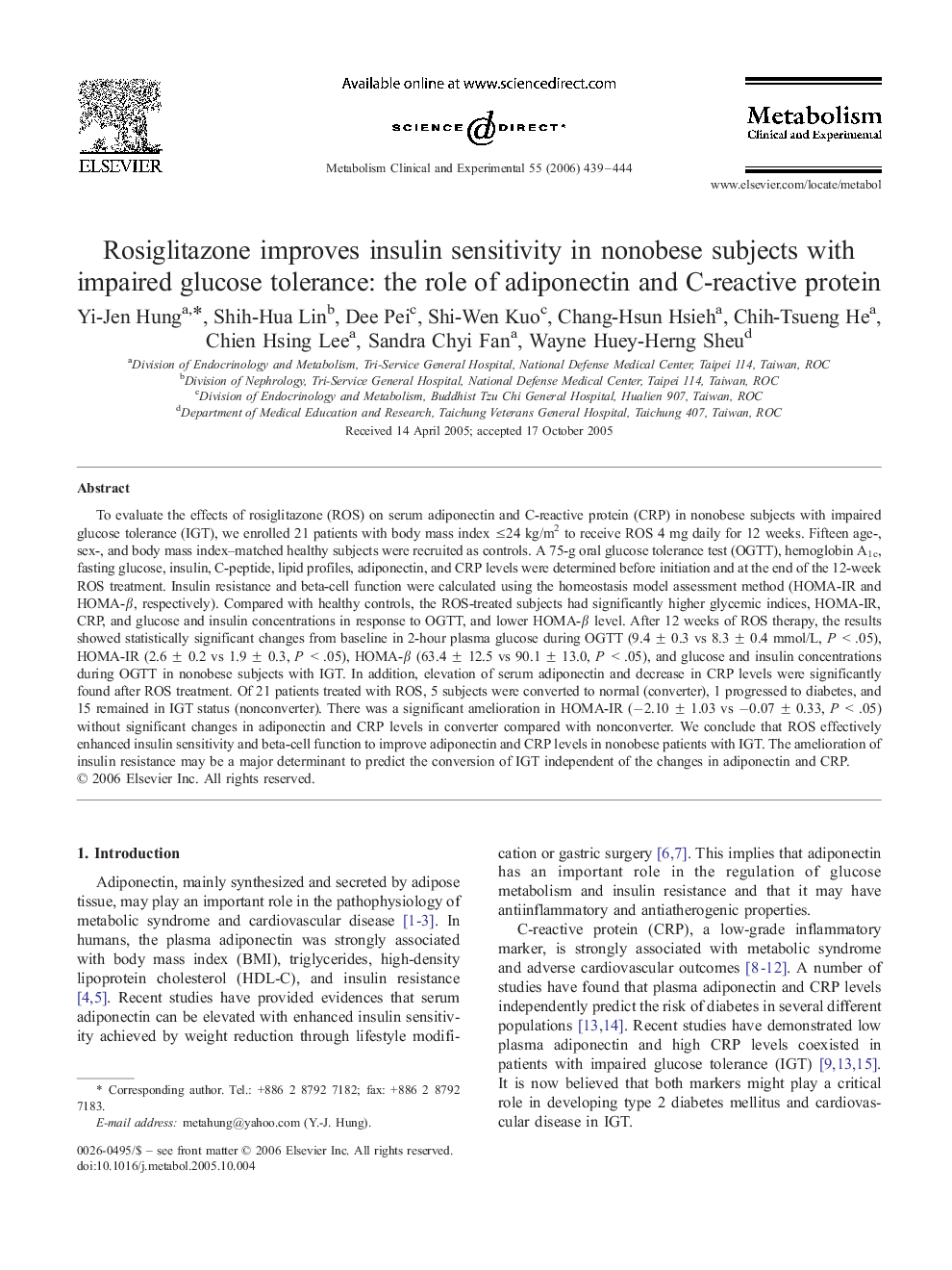| Article ID | Journal | Published Year | Pages | File Type |
|---|---|---|---|---|
| 2807899 | Metabolism | 2006 | 6 Pages |
Abstract
To evaluate the effects of rosiglitazone (ROS) on serum adiponectin and C-reactive protein (CRP) in nonobese subjects with impaired glucose tolerance (IGT), we enrolled 21 patients with body mass index â¤24 kg/m2 to receive ROS 4 mg daily for 12 weeks. Fifteen age-, sex-, and body mass index-matched healthy subjects were recruited as controls. A 75-g oral glucose tolerance test (OGTT), hemoglobin A1c, fasting glucose, insulin, C-peptide, lipid profiles, adiponectin, and CRP levels were determined before initiation and at the end of the 12-week ROS treatment. Insulin resistance and beta-cell function were calculated using the homeostasis model assessment method (HOMA-IR and HOMA-β, respectively). Compared with healthy controls, the ROS-treated subjects had significantly higher glycemic indices, HOMA-IR, CRP, and glucose and insulin concentrations in response to OGTT, and lower HOMA-β level. After 12 weeks of ROS therapy, the results showed statistically significant changes from baseline in 2-hour plasma glucose during OGTT (9.4 ± 0.3 vs 8.3 ± 0.4 mmol/L, P < .05), HOMA-IR (2.6 ± 0.2 vs 1.9 ± 0.3, P < .05), HOMA-β (63.4 ± 12.5 vs 90.1 ± 13.0, P < .05), and glucose and insulin concentrations during OGTT in nonobese subjects with IGT. In addition, elevation of serum adiponectin and decrease in CRP levels were significantly found after ROS treatment. Of 21 patients treated with ROS, 5 subjects were converted to normal (converter), 1 progressed to diabetes, and 15 remained in IGT status (nonconverter). There was a significant amelioration in HOMA-IR (â2.10 ± 1.03 vs â0.07 ± 0.33, P < .05) without significant changes in adiponectin and CRP levels in converter compared with nonconverter. We conclude that ROS effectively enhanced insulin sensitivity and beta-cell function to improve adiponectin and CRP levels in nonobese patients with IGT. The amelioration of insulin resistance may be a major determinant to predict the conversion of IGT independent of the changes in adiponectin and CRP.
Related Topics
Life Sciences
Biochemistry, Genetics and Molecular Biology
Endocrinology
Authors
Yi-Jen Hung, Shih-Hua Lin, Dee Pei, Shi-Wen Kuo, Chang-Hsun Hsieh, Chih-Tsueng He, Chien Hsing Lee, Sandra Chyi Fan, Wayne Huey-Herng Sheu,
